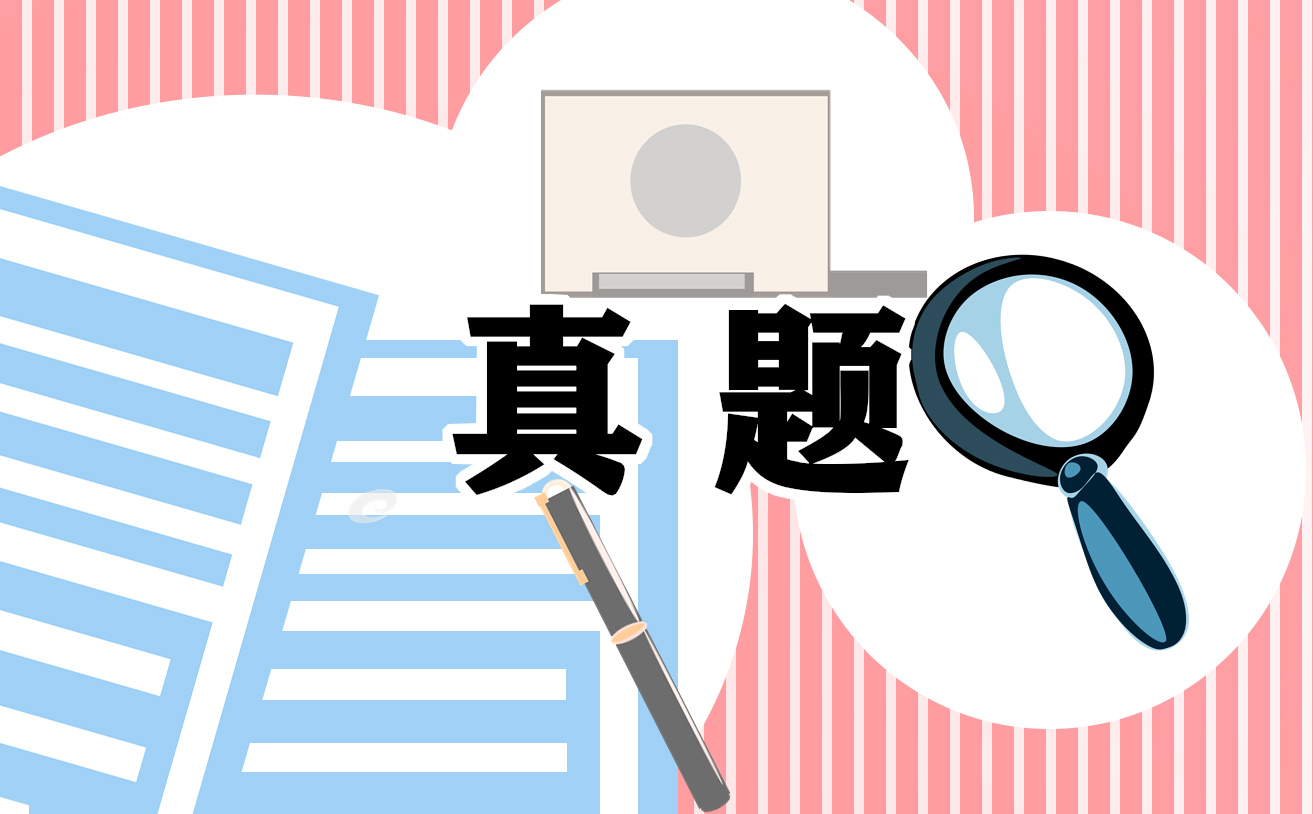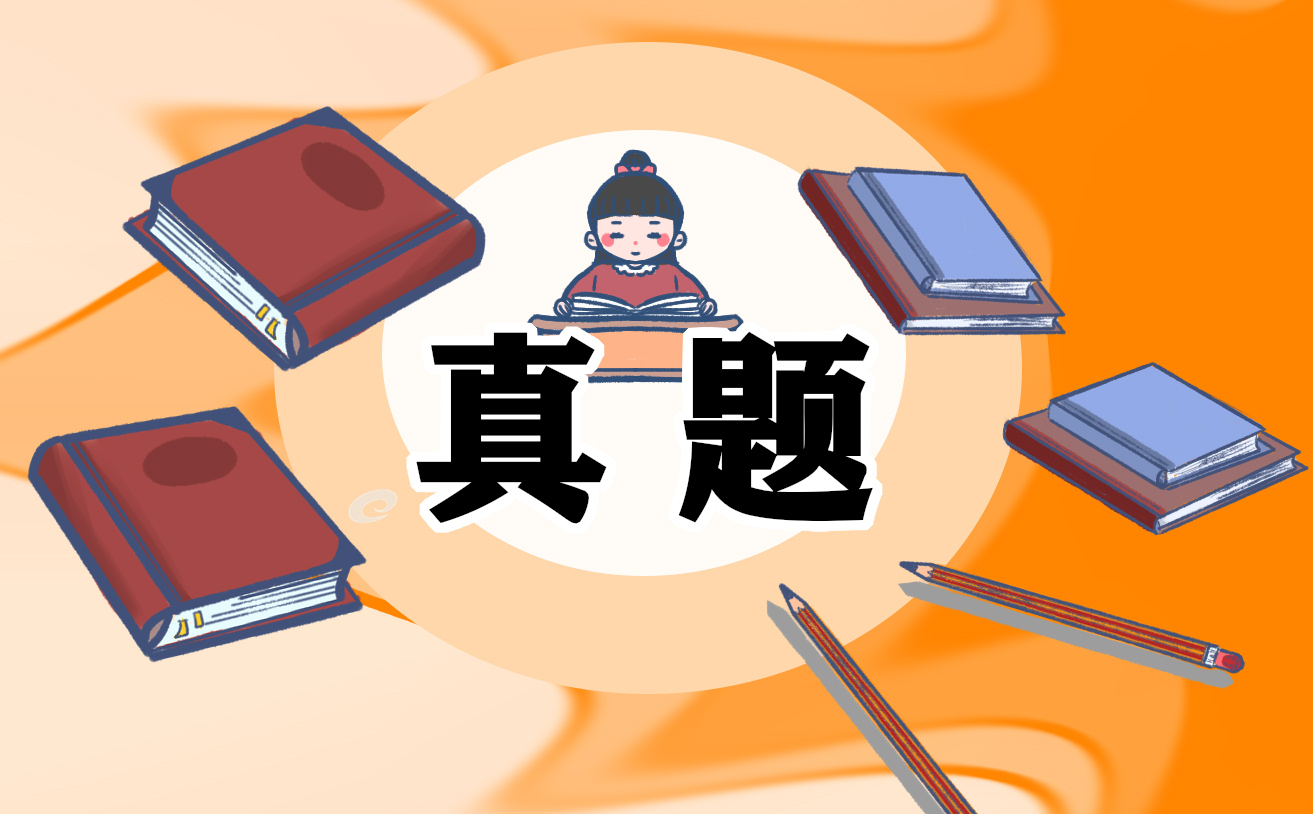詞匯是英語學習的門檻,發現身邊很多同學之所以對英語不感興趣或者說是懼怕,就是因為起初詞匯學習和背單詞這塊沒有掌握系統科學的學習方法,下文是小編為你精心編輯整理的考研歷年英語一完形填空真題,希望對你有所幫助,更多內容,請點擊相關欄目查看,謝謝!

考研歷年英語一完形填空真題1
Read the following text. Choose the best word (s) for each numbered blank and mark A, B, C or D on the ANSWER SHEET. (10 points)
Trust is a tricky business. On the one hand, it's a necessary condition 1 many worthwhile things: child care, friendships, etc. On the other hand, putting your 2, in the wrong place often carries a high 3.
4, why do we trust at all? Well, because it feels good. 5 people place their trust in an individual or an institution, their brains release oxytocin, a hormone that 6 pleasurable feelings and triggers the herding instruct that prompts humans to 7 with one another. Scientists have found that exposure 8 this hormone puts us in a trusting 9: In a Swiss study, researchers sprayed oxytocin into the noses of half the subjects; those subjects were ready to lend significantly higher amounts of money to strangers than were their 10 who inhaled something else.
11 for us, we also have a sixth sense for dishonesty that may 12 us. A Canadian study found that children as young as 14 months can differentiate 13 a credible person and a dishonest one. Sixty toddlers were each 14 to an adult tester holding a plastic container. The tester would ask, “What’s in here?” before looking into the container, smiling, and exclaiming, “Wow!” Each subject was then invited to look 15. Half of them found a toy; the other half 16 the container was empty-and realized the tester had 17 them.
Among the children who had not been tricked, the majority were 18 to cooperate with the tester in learning a new skill, demonstrating that they trusted his leadership. 19, only five of the 30 children paired with the “20”tester participated in a follow-up activity.
1. [A] on [B] like [C] for [D] from
2. [A] faith [B] concern [C] attention [D] interest
3. [A] benefit [B] debt [C] hope [D] price
4. [A] Therefore [B] Then [C] Instead [D] Again
5. [A]Until [B] Unless [C] Although [D] When
6. [A] selects [B] produces [C] applies [D] maintains
7. [A] consult [B] compete [C] connect [D] compare
8. [A] at [B] by [C]of [D]to
9. [A] context [B] mood [C] period [D] circle
10.[A] counterparts [B] substitutes [C] colleagues [D]supporters
11.[A] Funny [B] Lucky [C] Odd [D] Ironic
12.[A] monitor [B] protect [C] surprise [D] delight
13.[A] between [B] within [C] toward [D] over
14.[A] transferred [B] added [C] introduced [D] entrusted
15.[A] out [B] back [C] around [D] inside
16.[A] discovered [B] proved [C] insisted [D] .remembered
17.[A] betrayed [B]wronged [C] fooled [D] mocked
18.[A] forced [B] willing [C] hesitant [D] entitled
19.[A] In contrast [B] As a result [C] On the whole [D] For instance
20.[A] inflexible [B] incapable [C] unreliable [D] unsuitable
考研歷年英語一完形填空真題2
Directions:
Read the following text. Choose the best word(s) for each numbered blank and mark [A], [B], [C] or [D] on ANSWER SHEET 1. (10 points)
Ancient Greek philosopher Aristotle viewed laughter as “a bodily exercise precious to health.” But __1___some claims to the contrary, laughing probably has little influence on physical fitness Laughter does __2___short-term changes in the function of the heart and its blood vessels, ___3_ heart rate and oxygen consumption But because hard laughter is difficult to __4__, a good laugh is unlikely to have __5___ benefits the way, say, walking or jogging does.
__6__, instead of straining muscles to build them, as exercise does, laughter apparently accomplishes the __7__, studies dating back to the 1930‘s indicate that laughter__8___ muscles, decreasing muscle tone for up to 45 minutes after the laugh dies down.
Such bodily reaction might conceivably help _9__the effects of psychological stress. Anyway, the act of laughing probably does produce other types of ___10___ feedback, that improve an individual‘s emotional state. __11____one classical theory of emotion, our feelings are partially rooted ____12___ physical reactions. It was argued at the end of the 19th century that humans do not cry ___13___they are sad but they become sad when the tears begin to flow.
Although sadness also ____14___ tears, evidence suggests that emotions can flow __15___ muscular responses. In an experiment published in 1988,social psychologist Fritz Strack of the University of würzburg in Germany asked volunteers to __16___ a pen either with their teeth-thereby creating an artificial smile – or with their lips, which would produce a(n) __17___ expression. Those forced to exercise their enthusiastically to funny catoons than did those whose months were contracted in a frown, ____19___ that expressions may influence emotions rather than just the other way around __20__ , the physical act of laughter could improve mood.
1.[A]among [B]except [C]despite [D]like
2.[A]reflect [B]demand [C]indicate [D]produce
3.[A]stabilizing [B]boosting [C]impairing [D]determining
4.[A]transmit [B]sustain [C]evaluate [D]observe
5.[A]measurable [B]manageable [C]affordable [D]renewable
6.[A]In turn [B]In fact [C]In addition [D]In brief
7.[A]opposite [B]impossible [C]average [D]expected
8.[A]hardens [B]weakens [C]tightens [D]relaxes
9.[A]aggravate [B]generate [C]moderate [D]enhance
10.[A]physical [B]mental [C]subconscious [D]internal
11.[A]Except for [B]According to [C]Due to [D]As for
12.[A]with [B]on [C]in [D]at
13.[A]unless [B]until [C]if [D]because
14.[A]exhausts [B]follows [C]precedes [D]suppresses
15.[A]into [B]from [C]towards [D]beyond
16.[A]fetch [B]bite [C]pick [D]hold
17.[A]disappointed [B]excited [C]joyful [D]indifferent
18.[A]adapted [B]catered [C]turned [D]reacted
19.[A]suggesting [B]requiring [C]mentioning [D]supposing
20.[A]Eventually [B]Consequently [C]Similarly [D]Conversely
考研歷年英語一完形填空真題3
Directions:
Read the following text. Choose the best word(s) for each numbered blank and mark A, B, C or D on ANSWER SHEET 1. (10 points)
People are, on the whole, poor at considering background information when making individual decisions. At first glance this might seem like a strength that 1 the ability to make judgments which are unbiased by 2 factors. But Dr. Uri Simonsohn speculated that an inability to consider the big 3 was leading decision-makers to be biased by the daily samles of information they were working with. 4 , he theorised that a judge 5 of apperaring too soft 6 crime might be more likely to send someone to prison 7 he had already sentenced five or six other defendants only to forced community service on that day.
To 8 this idea, he turned to the university-admissions process. In theory, the 9 of an applicant should not depend on the few others 10 randomly for interview during the same day, but Dr. Simonsoho suspected the truth was 11 .
He studied the results of 9,323 MBA interviews 12 by 31 admissions officers. The interviewers had 13 applicants on a scale of one to five. This scale 14 numerous factors into consideration. The scores were 15 used in conjunction with an applicant’s score on the Granduate Managent Adimssion Test, or GMAT, a standardized exam which is 16 out of 800 points, to make a decision on whether to accept him or her.
Dr. Simonsoho found if the score of the previous candidate in a daily series of interviewees was 0.75 points or more higher than that of the one 17 that, then the score for the next applicant would 18 by an average of 0.075 points. This might sound small, but to 19 the effects of such a decrease a candidate could need 30 more GMAT points than would otherwise have been 20 .
1. [A] grants [B]submits [C]transmits [D]delivers
2. [A] minor [B]objective [C]crucial [D] external
3. [A] issue [B]vision [C]picture [D]external
4. [A] For example [B] On average [C]In principle [D]Above all
5. [A] fond [B] fearful [C]capable [D] thoughtless
6. [A] in [B] on [C] to [D] for
7. [A] if [B] until [C] though [D] unless
8. [A] promote [B] emphasize [C] share [D]success
9. [A] decision [B] quality [C] status [D] success
10. [A] chosen [B] studied [C] found [D] identified
11. [A] exceptional [B] defensible [C] replaceable [D] otherwise
12. [A] inspired [B] expressed [C] conducted [D] secured
13. [A] assigned [B] rated [C] matched [D] arranged
14. [A] put [B] got [C] gave [D] took
15. [A] instead [B] then [C] ever [D] rather
16. [A] selected [B] passed [C] marked [D] introduced
17. [A] before [B] after [C] above [D] below
18. [A] jump [B] float [C] drop [D] fluctuate
19. [A] achieve [B] undo [C] maintain [D] disregard
20. [A] promising [B] possible [C] necessary [D] helpful
考研歷年英語一完形填空真題4
Directions:
Read the following text. Choose the best word(S) for each numbered blank and mark A, B ,C or D on ANSWER SHEET. (10 Points)
As many people hit middle age, they often start to notice that their memory and mental clarity are not what they used to be. We suddenly can't remember 1 we put the keys just a moment ago, or an old acquaintance's name, or the name of an old band we used to love. As the brain 2 , we refer to these occurrences as "senior moments." 3 seemingly innocent, this loss of mental focus can potentially have a(an) 4 impact on our professional, social, and personal 5 .
Neuroscientists, experts who study the nervous system, are increasingly showing that there's actually a lot that can be done. It 6 out that the brain needs exercise in much the same way our muscles do, and the right mental 7 can significantly improve our basic cognitive 8 . Thinking is essentially a 9 of making connections in the brain. To a certain extent, our ability to 10 in making the connections that drive intelligence is inherited. 11 , because these connections are made through effort and practice, scientists believe that intelligence can expand and fluctuate 12 mental effort.
Now, a new Web-based company has taken it a step 13 and developed the first "brain training program" designed to actually help people improve and regain their mental 14 .
The Web-based program 15 you to systematically improve your memory and attention skills. The program keeps 16 of your progress and provides detailed feedback 17 your performance and improvement. Most importantly, it 18 modifies and enhances the games you play to 19 on the strengths you are developing--much like a(n) 20 exercise routine requires you to increase resistance and vary your muscle use.
1.[A]where [B]when [C]that [D]why
2.[A]improves [B]fades [C]recovers [D]collapses
3.[A]If [B]Unless [C]Once [D]While
4.[A]uneven [B]limited [C]damaging [D]obscure
5.[A]wellbeing [B]environment [C]relationship [D]outlook
6.[A]turns [B]finds [C]points [D]figures
7.[A]roundabouts [B]responses [C]workouts [D]associations
8.[A]genre [B]functions [C]circumstances [D]criterion
9.[A]channel [B]condition [C]sequence [D]process
10.[A]persist [B]believe [C]excel [D]feature
11.[A]Therefore [B]Moreover [C]Otherwise [D]However
12.[A]according to [B]regardless of [C]apart from [D]instead of
13.[A]back [B]further [C]aside [D]around
14.[A]sharpness [B]stability [C]framework [D]flexibility
15.[A]forces [B]reminds [C]hurries [D]allows
16.[A]hold [B]track [C]order [D]pace
17.[A] to [B]with [C]for [D]on
18.[A]irregularly [B]habitually [C]constantly [D]unusually
19.[A]carry [B]put [C]build [D]take
20.[A]risky [B]effective [C]idle [D]familiar
考研歷年英語一相關文章:
★ 考研英語
★ 考研英語作文:推薦背誦的精文10篇(09)
★ 詳解考研英語翻譯法則之翻譯五步驟
★ 考研英語快速閱讀基本方法
★ 考研英語長難句:一句句突破長難句(21)
★ 最新考研復試的英語自我介紹
★ 考研英語長難句:一句句突破長難句(23)
★ 考研英語長難句:一句句突破長難句(03)
★ 考研英語長難句:一句句突破長難句(06)
★ 考研英語長難句:一句句突破長難句(05)
上一篇:英語一考研歷年真題閱讀理解
下一篇:往年考研英語二真題完形填空


